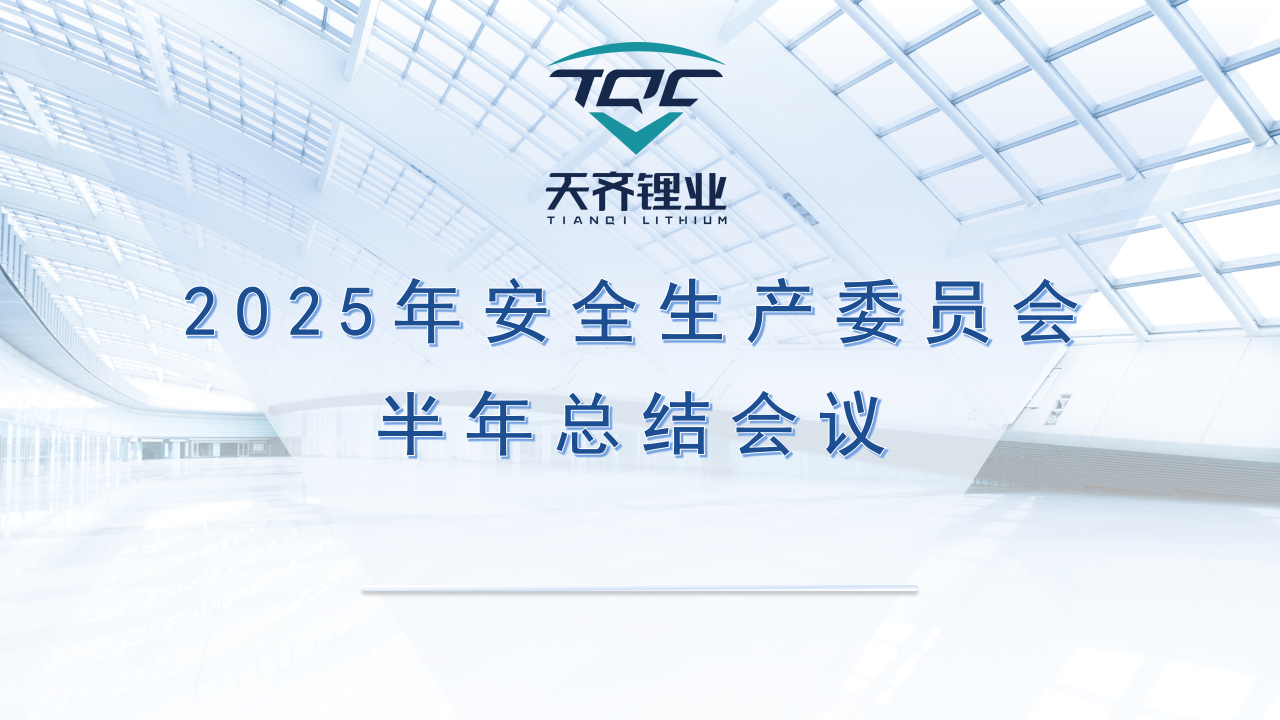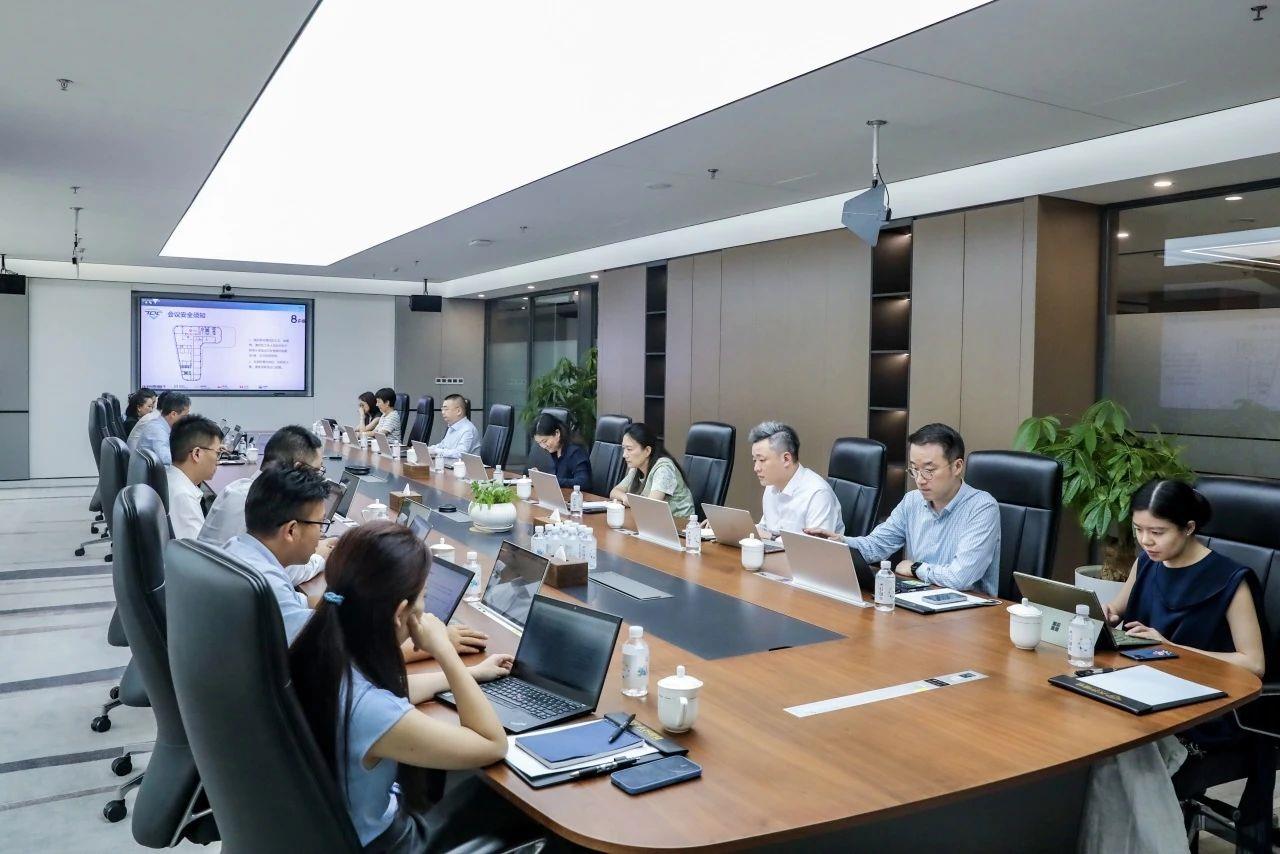Media
To strengthen the company's safety production management, enforce accountability under the safety responsibility system, and improve the environment,health , andsafety(EHS) management system, Tianqi Lithium successfully convened the 2025 mid-year meeting of its Safety Production Committee on July 17. Chairwoman Jiang Anqi and Executive Vice President & Chief Operating Officer Guo Wei attended the meeting and delivered speeches. Other senior executives, members of the Safety Production Committee, and managers from the Environment, Health and Safety (EHS) Department participated both online and onsite.

▲2025 Mid-Year Meeting of the Safety Production Committee
During the meeting, Mr. Pan Xin, Director of the EHS Department, reviewed previous action items, objectives, and plans, and summarized key EHS efforts in the first half of the year. His report included an overview of routine and overhaul-related EHS performance, incident reviews, and the development of an EHS-focused culture. He also outlined major EHS priorities for the second half of 2025. Subsequently, leaders from various sites and project teams delivered their reports on annual EHS performance.
In his remarks, Mr. Guo Wei reflected on the company’s EHS achievementsin the first half of 2025. He noted that despite several projects entering critical phases and increasing regulatory scrutiny, Tianqi maintained strong EHS performance, with all key indicators exceeding target expectations. Through continuous enhancement of on-site risk management, the company successfully met dual goals of shortening overhaul schedules and achieving zero safety incidents, demonstrating exceptional execution and team coordination. He further highlighted the company's successful implementation of two major thematic campaigns: Occupational Disease Prevention Law Awareness Week and National Safety Production Month. These initiatives significantly contributed to building a robust safety culture, shifting employees' mindset from “being told to be safe” to actively embracing the values of “wanting to be safe, knowing how to be safe, and being capable of acting safely.” At the same time, Mr. Guo emphasized the need to remain focused on the prevention and control of EHS incidents by strengthening hierarchical risk management, to further enhance the effectiveness of the EHS management system by building a unified and standardized framework, and to continue improving contractor and special operations oversight through higher standards, stricter requirements, and more practical, actionable measures, laying a solid foundation for advancing all aspects of EHS work across the company.

Jiang Anqi stated that in the first half of 2025, despite the dual challenges of business expansion and increased management scope, the company's EHS performance remained stable with continued improvement, demonstrating strong managerial resilience and underscoring the company's firm commitment to safety management. In light of the current situation and tasks ahead, she put forward three key requirements:
Firstly, Continuously promote the deep integration of EHS with corporate governance, strengthen strategic guidance, and solidify the foundation for enterprise development. EHS indicators should be incorporated as critical factors in high-quality corporate development. The EHS management system must be closely aligned with the company’s overall strategy, ensuring that EHS requirements are fully embedded in every aspect of business expansion, technological innovation, new project construction, major facility overhauls and upgrades, and daily operations.
Secondly, Drive green innovation and risk prevention with a focus on sustainable development. Efforts should be made to gradually expand EHS influence over contractors, and work together with partners to jointly practice EHS principles. By leveraging digital technologies to proactively identify risks and dynamically monitor operational processes, the company can enhance the precision and foresight of its EHS management, injecting fresh vitality into its sustainable development.
Thirdly, Strengthen the accountability system, enhance leadership at all levels, and promote a deeply rooted safety culture. Managers at all levels are encouraged to engage directly with frontline operations—identifying issues through inspections, uncovering gaps during drills, and spotting blind spots during activities. This systematic approach to management improvement should help embed safety culture into the collective mindset of employees, becoming a powerful driving force for the continuous advancement of the company's safety management standards.
Tianqi Lithium has always upheld the principle that "economic interests shall never override environment, health, and safety concerns." Looking ahead, the company will advance EHS management to a new level by adopting a higher strategic perspective, stricter standards, and more pragmatic measures, striving for steady and long-term progress on the path of sustainable development.


